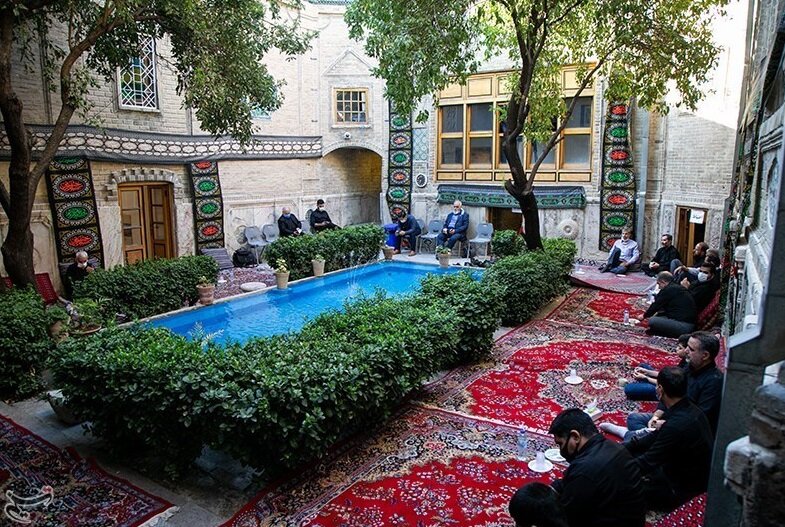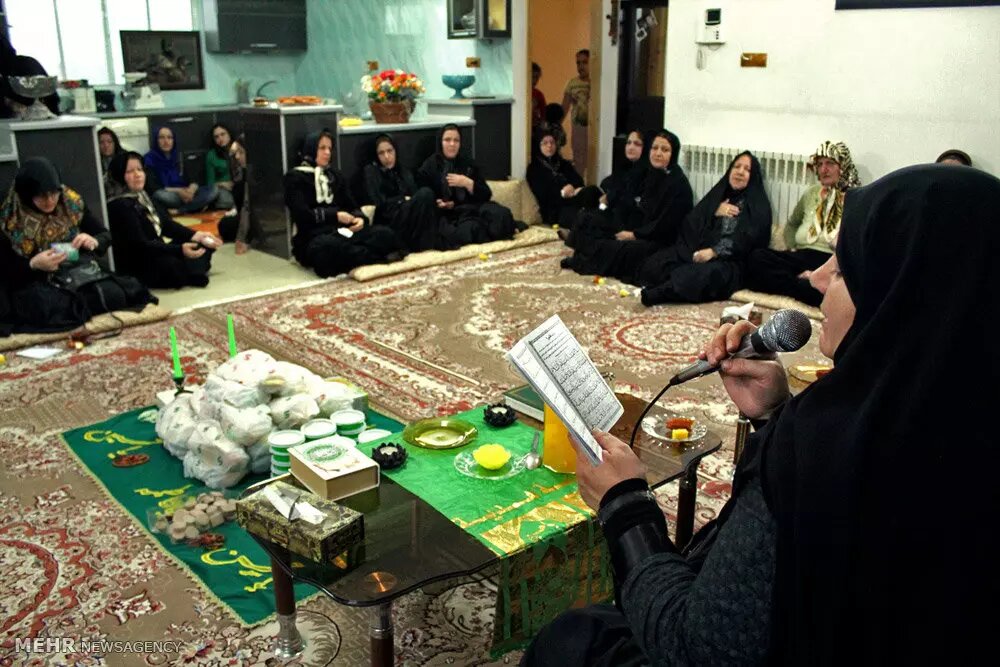Home eulogies observing Imam Hussein’s martyrdom gains national status

TEHRAN – Mourning eulogies that Iranian people perform at their homes to commemorate the martyrdom of Imam Hussein (AS) and his loyal companions have collectively been registered on the national list of intangible cultural heritage.
Those eulogies are usefully performed during the first ten days of the lunar month of Muharram when a grief-stricken atmosphere prevails in all corners of the country to pay tribute to the third Shia Iman who was a grandson of the Prophet Muhammad (PBUH), slain in 680 CE at Karbala in modern-day Iraq.
They say the commemoration of Ashura (the tenth day of Muharram which the public mourning reaches its climax) is a tribute to truth and justice and condemnation of tyranny anytime and anywhere. This is perhaps one of the many reasons why a day like Ashura can never be overlooked, as these rituals encompass universal values that will never wear out.

From a theological perspective, religious mourning and rituals are perhaps a revival of collective memories that help shape what is known as collective identity, an essential foundation for a sense of belonging.
During Muharram, every village, township, city, or metropolis is abuzz with preparation for food offerings known as Nazri, the processions of which are usually sponsored by wealthy benefactors.
Facts
Muharram is the first month of the Islamic calendar and therefore the 1st day of the month marks the Islamic new year. Since the Islamic calendar is lunar, Muharram moves from year to year. This is while the Persian New Year falls on July 30, 2022, according to the solar calendar.
Muharram (derived from the word Haram, meaning forbidden) is one of the four sacred months of the year in which war is prohibited.
All government offices, universities, sporting arenas, cinemas as well as most tourist attractions like museums are closed during Tasu’a (Thursday, July 27, 2023) and Ashura (Friday, July 28, 2023). Most of the restaurants are closed in Ashura as well.
In Islamic and Persian culture, the 3rd, 7th, and 40th day of birth and particularly death are significant dates. Arbaeen (literally meaning forty in the Arabic language) which marks 40 days after the death of Imam Hussein (AS) is also a typical period of mourning for Muslims.
During Muharram, particularly on Tasu’a and Ashura, people refrain from doing or saying things that may violate the honorable spirit of the month. Television and radio channels alter their timings and programs to accommodate more religious sermons, mourning songs, live ceremonies, and films about the spirit of the month.
Black as the color of mourning during this month is visible in people’s attire, banners hanging from buildings, billboards, decoration of city walls, and in the writings on the rearview windows of cars.
The night of Ashura in Iran is called Shaam-e Ghariban, meaning “the night of strangers” and those who are far from home and help. People light candles in holy places and gatherings in every corner of the country.
The tragedy is also observed in some other countries with sizeable Shia communities, including Iraq, Afghanistan, Azerbaijan, Bahrain, Lebanon, Pakistan, Saudi Arabia, and Syria.
AFM
Leave a Comment